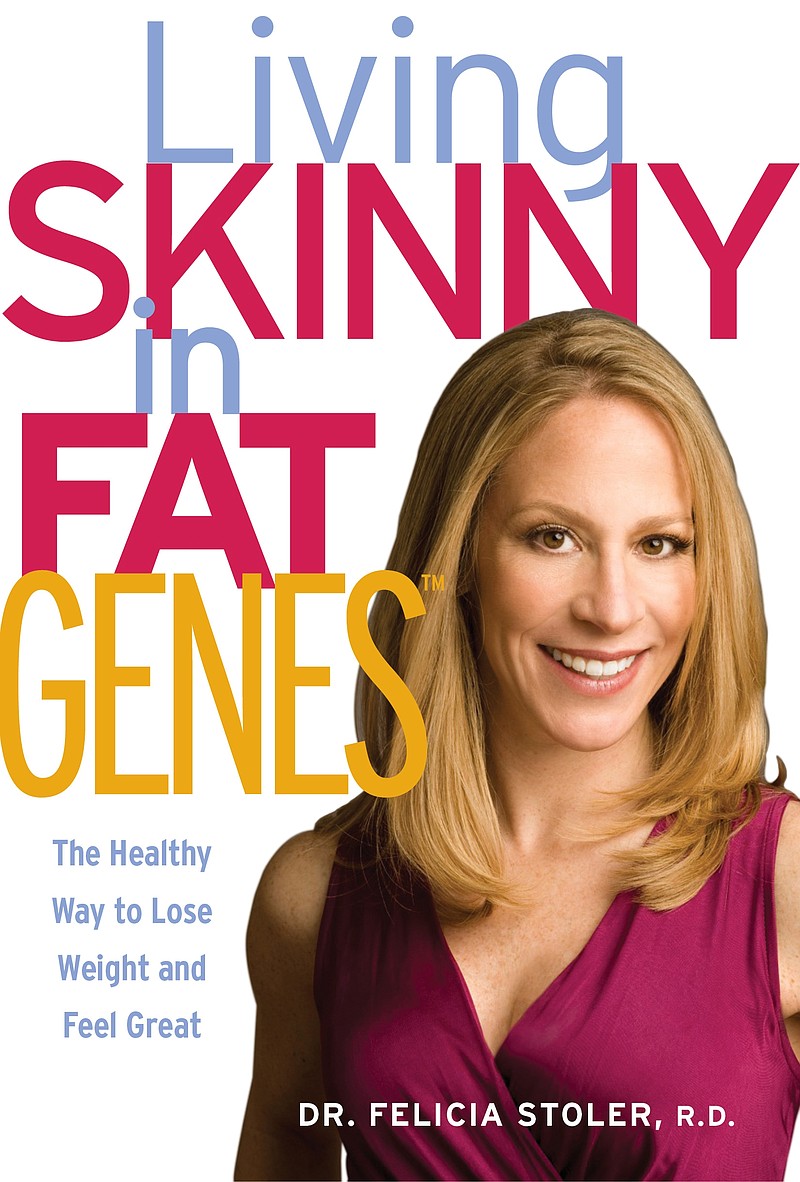Trans fats are your enemy, and Dr. Felicia Stoler wants you to eliminate them from your diet.
Stoler, a registered dietitian living in New Jersey, is on a mission that's taking her to cities across the country, including Chattanooga, to educate people about trans fats.
Her goal is to spread the word about trans fats and get people in the habit of reading labels while grocery shopping. Breakfast cereals, for example, may contain trans fats.
"Check the labels of cold cereal. If you see the words 'partially hydrogenated,' put the box back on the shelf," says Stoler, who wrote the 2011 book "Living Skinny in Fat Genes."
Where we stand on trans fats
Trans fats won’t be completely gone from food products until the new FDA ruling takes effect in 2018.Partially hydrogenated oils (PHOs), the primary source of industrially produced trans fats, are found in many popular processed foods such as baked goods and frozen foods. PHOs have been widely used as ingredients since the 1950s to increase the shelf-life and flavor stability of processed foods. But trans fats also occur naturally in meat and dairy products and are present at very low levels in other edible oils, where they are unavoidably produced during the manufacturing process.Source: www.fda.gov
Some brands of peanut butter also may contain trans fats.
"This is really important because you don't want to expose your children to trans fats," she says. "Peanut butter that contains Malaysian sustainable palm oil has no trans fats."
In June, the U.S. Food and Drug Administration made the announcement that partially hydrogenated oils (PHOs), the primary dietary source of artificial trans fat in processed foods, are not generally recognized as safe for use in human food. The FDA ruled that manufacturers have three years to remove them from their products.
"The FDA's action on this major source of artificial trans fat demonstrates the agency's commitment to the heart health of all Americans," Dr. Stephen Ostroff, FDA's acting commissioner, said in a news release. "This action is expected to reduce coronary heart disease and prevent thousands of fatal heart attacks every year."
Stoler will be here from Aug. 10-12, appearing on local TV stations and discussing ways to avoid foods high in trans fats when grocery shopping, says publicist Sallie Crowl. Her appearance in Chattanooga is in response to the recent FDA ruling, Crowl says, which won't take effect until 2018.
"Until the FDA's new ruling takes effect in 2018, foods labeled 'zero trans fats' may legally still contain up to half a gram of trans fat per serving," Crowl says. "Those serving sizes can be deceptively small. That means trans fats can add up quickly and with serious health consequences."
Stoler points to margarine as another product to reconsider purchasing when shopping for trans fats-free food.
"Margarine was created as an alternative to butter. The trans fat in margarines enables them to stay solid at room temperature," she says. "That trans fat not only increases the bad LDL cholesterol but also lowers good HDL cholesterol.
Butter is a healthier alternative, she says.
Other tips from Stoler: Eliminate frozen potatoes and microwave popcorn from your diet.
Most brands of frozen potatoes contain added fats, she says, so buy fresh potatoes. Many brands of microwave popcorn, though being a good source of dietary fiber, also have trans fats. Instead, Stoler says, use a heavy-bottom pot and pop organic popcorn the old-fashioned way.
And ditch the soft drinks. Instead, drink lots of water, 100 percent fruit juice and cows' milk, she says.
"Also try to get enough sleep. Diet and exercise are very important, but so is sleep."
Stoler says her own good health habits didn't develop until she was out of college and starting a career.
"Nobody tells you that, when you reach your 20s, your metabolism and body changes," she says. "It was 1989, I had just gotten out of college and got a job on Wall Street. I became mentally busy and physically sedentary. I was eating out a lot, consuming beverages - all of which didn't lend itself to good health. Then one day I woke up 20 pounds heavier. I thought I had a tumor."
No tumor, she says.
What to avoid
› Baked goods› Ready-made frosting› Potato, corn and tortilla chips› Microwave popcorn› Fried food› Refrigerator dough› Creamer and margarineSource: Mayo Clinic
"I had to change my habits, but these were during the days of diet pills and there was a great deal of misinformation on dieting. Nothing I tried worked."
Then, while in graduate school, she hit gold.
"I found someone who understood nutrition and how the body works. I changed my eating habits, exercised and, within a year, lost all the weight."
Today, at 48, with a masters in science in applied physiology and nutrition and a doctorate in clinical nutrition, Stoler is also a fellow of the American College of Sports Medicine.
"I practice what I preach and I do it at work and at home," she says, noting that she's the parent of three teenagers. "The foundation for heart disease develop in the first few decades of life. It's important to feed your kids well and instill good habits. It's not do as I say, but do as I do. I exercise. I eat right. I eat fruit and veggies and so do my kids."
You're never too old to change your eating habits or start an exercising regime, she says.
"I recently had two clients in their 70s who came in to learn to eat right," Stoler says. "There's no age to learn how to change. Don't wait until something is wrong to ask for help. I even had a doctor who set up an appointment with me because he wants to eat right."
Contact Karen Nazor Hill at khill@timesfreepress.com or 423-757-6396.

